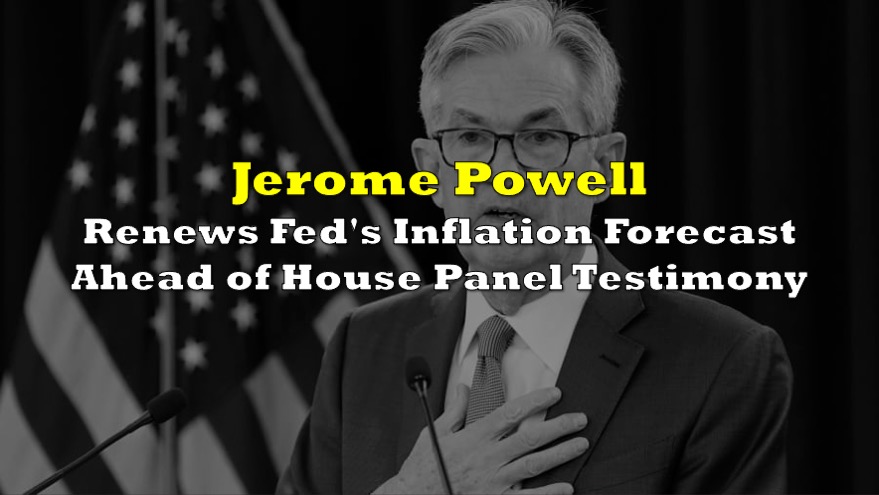Market strategist and historian Russell Napier broke his own long-time deflationist character two years ago by warning a return of inflation. Later on, price indices among developed economies are breaking record highs.
In an interview with The Market NZZ, Napier broke down his controversial view that is toplined by a 15–20-year period of inherently high inflation and financial suppression.
Structural inflation
“My forecast is unchanged: This is structural in nature, not cyclical. We are experiencing a fundamental shift in the inner workings of most Western economies,” Napier started when asked about the current inflation levels. “We are in the process of moving to a system where a large part of the allocation of resources is not left to markets anymore.”
He added that this shift is not a new phenomenon; it was the system in place from 1939 until 1979. It was just forgotten how it works because most economists are “educated in free market economics rather than history.”
“Too high” debts
The major reason, according to Napier, is that debt levels have simply become unsustainable. The total private and public sector debt in the United States is 290% of GDP. It is 371% in France and higher than 250% in several other Western economies, including Japan. The Great Recession of 2008 demonstrated that this amount of debt was far too high.
“We can’t stand normal, necessary recessions anymore without fearing a collapse of the system. So the level of debt – private and public – to GDP has to come down, and the easiest way to do that is by increasing the growth rate of nominal GDP,” he added, citing the 2008 deflationary debt liquidation.
Central banks to government
He identified governments seizing monetary control is what triggered this structural shift.
“My structural argument is that the power to control the creation of money has moved from central banks to governments. By issuing state guarantees on bank credit during the Covid crisis, governments have effectively taken over the levers to control the creation of money,” Napier explained.
While he noted the pushback argument that this setup was only temporary “to combat the effects of the pandemic,” Napier also countered that “we have another emergency, with the war in Ukraine and the energy crisis that comes with it.”
“Exactly, which means governments won’t retreat from these policies,” Napier answered when asked if there will always be another emergency. “Just to give you some statistics on bank loans to corporates within the European Union since February 2020: out of all the new loans in Germany, 40% are guaranteed by the government. In France, it’s 70% of all new loans, and in Italy it’s over 100%, because they migrate old maturing credit to new, government-guaranteed schemes.”
“This is the new normal. For the government, credit guarantees are like the magic money tree: the closest thing to free money. They don’t have to issue more government debt, they don’t need to raise taxes, they just issue credit guarantees to the commercial banks,” he added.
Higher dose of inflation is the desired outcome
Controlling credit also gives the governments control over economic metrics, says Napier, as “by guiding the growth of credit and therefore the growth of money, they can control the nominal growth of the economy.”
The solution: inflation.
“Engineering a higher nominal GDP growth through a higher structural level of inflation is a proven way to get rid of high levels of debt,” Napier said. “Of course nobody will ever say this officially, and most politicians are probably not even aware of this, but pushing nominal growth through a higher dose of inflation is the desired outcome here.”
Napier believes that inflation settling between 4% and 6% is what’s in store and necessary to counter the ballooning credit “because it has to be a level that the government can get away with.”
“Financial repression means stealing money from savers and old people slowly. The slow part is important in order for the pain not to become too apparent,” he expounded.
Banks are “impotent”
“We today have a disconnect between the hawkish rhetorics of central banks and the actions of governments. Monetary policy is trying to hit the brakes hard, while fiscal policy tries to mitigate the effects of rising prices through vast payouts,” Napier explained.
In this counterpoint, he said that the governments would win: “No government is asking for permission from the central bank to introduce loan guarantees. They just do it.”
“They’re impotent. This is a shift of power that cannot be underestimated,” Napier answered when asked if he thinks the central banks are powerless. “Our whole economic system of the past 40 years was built on the assumption that the growth of credit and therefore broad money in the economy was controlled through the level of interest rates – and that central banks controlled interest rates.”
“But now, when governments take control of private credit creation through the banking system by guaranteeing loans, central banks are pushed out of their role,” he added.
“Watch the level of bond yields”
Napier believes this will happen to most Western central banks, like ECB, Bank of England, and Bank of Japan as “these countries are already well on their path to financial repression.”
It is also coming for the US, albeit delayed, but Napier added that it will reach a certain point “where it will be too much for the US as well.”
“Watch the level of bond yields. There is a level of bond yields that is just unacceptable for the US, because it would hurt the economy too much,” he warned.
How will these all play out according to Napier, is that it starts with governments directly interfering in the banking sector. Then, the government would aim for a consistently high growth rate of money, but not too high.
After that, there will be a domestic investor base captured by the regulatory framework and has to buy government bonds, regardless of their yield.
“This way, you prevent bond yields from rising above the rate of inflation. All this is in place today, as many insurance companies and pension funds have no choice but to buy government bonds,” Napier added.
“Banks keep lending”
Another point that Napier highlighted on why he thinks of a structural shift is his observation that “we are headed into a significant growth slowdown, even a recession, and bank credit is still growing.”
“The classic definition of a banker used to be that he lends you an umbrella but would take it away at the first sight of rain. Not this time. Banks keep lending, they even reduce their provisions for bad debt,” he explained.
What’s happening today is “banks keep lending, and nominal GDP will keep growing. That’s why, in nominal terms, we won’t see an economic contraction.”
Fiscal tug of war
When asked if central banks can try to regain control over the creation of money, Napier said “they could, but in order to do that, they would really have to go to war with their own government.” This would be hard since politicians can always resort to the argument of being elected to pursue political policies beyond fiscal.
“Arthur Burns, who was the Fed chairman during the Seventies, explained in a speech in 1979 why he lost control of inflation. There was an elected government, he said, elected to fight a war in Vietnam, elected to reduce inequality through Lyndon B. Johnson’s Great Society programs,” Napier recounted.
The same is true today: “People are screaming for energy relief, they want defence from Putin, they want to do something against climate change. People want that, and elected governments claim to follow the will of the people. No central banker will oppose that.”
“Remember I said that financial repression means engineering an inflation rate in the area of 4 to 6% and thereby achieving a nominal GDP growth rate of, say, 6 to 8%, while interest rates are kept at a lower level. Savers won’t like it, but debtors and young people will,” explained Napier.
This situation, he characterized, would potentially involve rising wages as “financial repression moves wealth from savers to debtors, and from old to young people.”
“It will allow a lot of investment directed into things that people care about,” he added.
15 years of financial repression
Having described the situation, Napier believes we are just beginning on the structural shift: “I think we’ll need at least 15 years of government-directed investment and financial repression. Average total debt to GDP is at 300% today. You’ll want to see it down to 200% or less.”
“We saw the endgame before, and that was the stagflation of the 1970s, when we had high inflation in combination with high unemployment,” he said.
Stagflation? Nonsense.
Napier also flatly called out people talking about observing stagflation today, saying “that’s utter nonsense.”
“They see high inflation and a slowing economy and think that’s stagflation. This is wrong. Stagflation is the combination of high inflation and high unemployment. That’s not what we have today, as we have record low unemployment,” he expounded.
“Avoid government bonds”
Napier said it is possible to avoid this shift “if governments went out of interfering with the banking system, reinstated private sector credit risk and handed back control over the growth of money to central bankers.”
He also added that “a huge productivity revolution that would make real GDP grow at 4%” would certainly help.
“This would allow us to keep inflation at 2% in order to get nominal growth of 6%,” he said.
But should we eventually enter this shift into a new economic world, Napier advised to “avoid government bonds” and look into equities instead.
“The great problems we have – energy, climate change, defence, inequality, our dependence on production from China – will all be solved by massive investment. This capex boom could last for a long time,” outlined Napier.
He also predicted that companies that are geared to this renaissance of capital spending will do well.
“Gold will do well once people realise that inflation won’t come down to pre-2020 levels but will settle between 4 and 6%,” he added.
Russell Napier is the co-founder of the investing research portal ERIC and the creator of the Solid Ground Investment Report. Since 1995, he has been writing macroeconomic strategy papers for institutional investors.
Information for this briefing was found via The Market NZZ. The author has no securities or affiliations related to this organization. Not a recommendation to buy or sell. Always do additional research and consult a professional before purchasing a security. The author holds no licenses.









